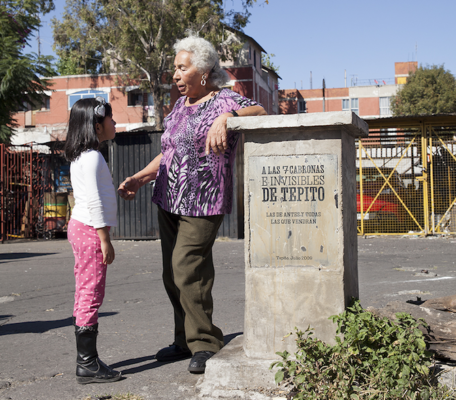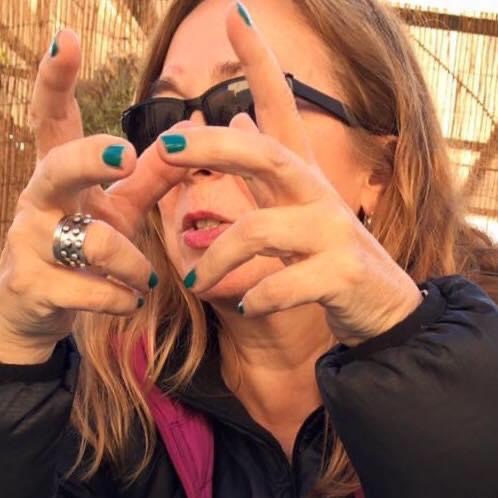Search
To search for an exact match, type the word or phrase you want in quotation marks.
A*DESK has been offering since 2002 contents about criticism and contemporary art. A*DESK has become consolidated thanks to all those who have believed in the project, all those who have followed us, debating, participating and collaborating. Many people have collaborated with A*DESK, and continue to do so. Their efforts, knowledge and belief in the project are what make it grow internationally. At A*DESK we have also generated work for over one hundred professionals in culture, from small collaborations with reviews and classes, to more prolonged and intense collaborations.
At A*DESK we believe in the need for free and universal access to culture and knowledge. We want to carry on being independent, remaining open to more ideas and opinions. If you believe in A*DESK, we need your backing to be able to continue. You can now participate in the project by supporting it. You can choose how much you want to contribute to the project.
You can decide how much you want to bring to the project.

She talks passionately, gesticulating with her hands. Mireia Sallarès is a great narrator of stories and prefers the direct account. She’s been working for years now investigating the records of lives lived, those realities that are a true record of the patrimony of humanity; ‘it’s not about a right to life, so much as the right to live life”. For this her characters and stories are intense, borderline and subversive and frequently, with the voice of a woman.
After years, of travelling around different countries, of research and encounters, readings and discussions, fearlessness and doubts, she has just inaugurated her best ever exhibition, until now, at the CA Tarragona. The large dock space lends its architecture to five projects never previously seen by the public, made by the artist over the last ten years. Political, but never demagogic pieces, projects about relations and interchanges with real characters who explain their story, through different formats and materials. They are lived snippets of the everyday, all unique and vulnerable but with a common objective: to resist dependency, violence, oblivion, exclusion, deportation, solitude or ignominy. The protagonists of the stories are human beings, with biographies of great existential and political significance, who share their desires and bravery with the artist and the public.
The works in this exhibition are presented in the media and materials that Mireia Sallarès usually works with: audio-visual recordings, objects, editions on paper, audio, photography, interventions in the space and text. But there is a leitmotif that connects the five stories; life experiences that struggle against the conflicts of marginalization and violence, calling into question truth and power. Zahïa is an Argelian woman who every night parks her food van in the centre of Valence, a foreigner in a zone affected by the gentrification that is threatening her only means of subsistence. The video and the installation ‘Le camion de Zahïa, conversations après le paradis perdu’ pays testimony to the nocturnal conversations between the owner, her clients and the artist, a collective condemned to disappear in the face of regulated consumerism and municipal bylaws. A Basque girl, Zaloa, in ’Mi visado de modelo II’, is obliged to simulate a profession in order to obtain a work visa for New York. The artist helps her film a video that presents her as a model. Exchange and complicity, that conform spaces of resistance against the condition of being a foreigner, one that also marks the artist.
The project with the most complex structure is ‘Las Muertes chiquitas’ realised in México. The title is a popular expression used to refer to orgasms, and in the entire project the body and sexuality act as the battlefield with which to win back liberty and dignity. Each particular experience of the women interviewed in the feature film ‘Las Muertes chiquitas’ is unforgettable. During five hours, women of all different social and cultural levels talk about their intimacy, desires, fears and struggles. The voices of these protagonists weave a real-life critique of the historical and social context to which they belong. The sessions that have been presented in MACBA have exceeded public demand and expectations, a real hit with the audience.
The city and its specific communities also feature in ’Se escapó desnuda, un proyecto sobre la verdad’ made in Caracas that offers a magnificent audio archive of reflections upon something as elusive as the notion of truth and its effect upon the behaviour of human ideas and actions. Undoubtedly one piece of great relational depth is the project ‘Las 7 cabronas del barrio de Tepito’, one of the most dangerous zones in the city of México DC where the women, the broads, deal with their day to day reality, confronting the patriarchal system, violence and injustice. The pedestal for a monument, devoid of any figure, installed in the district is dedicated to them and is the cause for the global title of the exhibition, ‘Monuments’. Stories that go against the tide, rebellious lives that are far from self-pitying, which the artist stages without any form of judgement, with all the power of lives lived and not just as conceptual exercises.
The exhibition is constructed as one single story that traverses diverse stories, the connections being formed by the tables of documentation. A presentation, that allows a more porous dialogue with the public. It’s imperative to get to know these works of Mireia Sallarès and equally to imagine new forms of reality. Reality, that, in the words of the poetess Wislawa Szymborska, whom the artist herself quotes, always defines itself, hence the greatness of its mystery.

Pilar Bonet Julve is a researcher and teacher. She has a degree in Medieval History and a PhD in Art History from the UB, where she teaches contemporary art and design, art criticism and curating. She is interested in the overflowing and political spaces of art, she is not motivated by heraldic criticism or the vase exhibition. A specialist in the life and work of the Catalan medium and artist Josefa Tolrà, she follows in the footsteps of visionary women as an experience of new humanity. She has recently presented exhibitions on irregular creativity: Josefa Tolrà and Julia Aguilar, Les Bernardes de Salt; ALMA. Médiums i Visionàries, Es Baluard Museum, Palma; La médium i el poeta. An astral conversation between Josefa Tolrà and Joan Brossa, Fundació Brossa. Writing and editing pacifies his soul. She manages the research group Visionary Women Art [V¬W].
www.josefatolra.org
@visionarywomenart
@josefatolra
@pilarbonetjulve
@artscoming
"A desk is a dangerous place from which to watch the world" (John Le Carré)